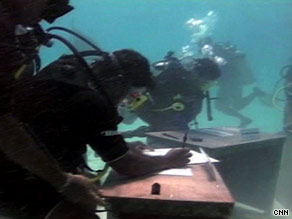Solidarity is a big piece of “accompaniment” – a way of engaging the world in mission which the ELCA defines as “Walking together in solidarity that practices interdependence and mutuality.”
It seems to me that we have at least two ways to walk together in solidarity with others we accompany. First, we can respect what they value. Second, we can try to understand the roots of their challenges, and then refuse to participate in behaviors that escalate those challenges.
Which brings us to a big uh-oh.
Theologian Cynthia Moe-Lobeda doubts that North Americans can actually accompany anyone authentically. At the recent ELCA Accompaniment Conference at Luther Seminary, she asked participants what it means for us Lutherans to accompany people “we are unwittingly or unknowingly killing” through our participation in an economic system she calls “life giving to us, but death dealing to others.”
She cited a woman strawberry picker in Central America who told her, “our children go hungry because this land grows strawberries for your tables,” and a community in India displaced from hereditary lands into urban poverty by bauxite mines that make aluminum for North American consumption.
Rather than examining our system to see how it harms others, she says, “We think our life is a good one, and we give thanks for it.” Professor Moe-Lobeda notes that while our hymns don’t typically thank God for material goods, our prayers do. “And a lot of those material goods are stolen goods.”
Welcome to the week we give thanks for our way of life, no matter what suffering it causes! Now what, as Christians and people concerned with hunger, shall we do?
Instead of reflexively thanking God for our lifestyle, can we reflect on how our prosperity harms the earth and others? Professor Moe-Lobeda believes that our faith calls us to recognize, name, and resist “social structural evils” that mean, for example, that a child born in North America will consume, waste and pollute in his or her lifetime as much as 50 children in developing countries.
Just being willing to question ways of life assumed to be good is a significant first step. Owning up to our complicity in the systems that support it—confessing that we participate and benefit—is a second step. Avoiding the temptation of shrugging our shoulders and declaring ourselves powerless to change anything is a third step. Seeking to create or nurture fairer alternatives is a fourth step.
That’s a lot of ground to cover over the mashed potatoes on Thursday. Since I’m not always tactful, I’ll probably focus on my fork and limit my efforts to leading a slightly less self-centered prayer.
Friday is another story! No early mall trips for me–I’ll be celebrating Buy Nothing Day, a holiday that helps me think about shopping and realize more deeply how tangled I am in our consumer economy. This year I’m hoping to be inspired to do less willful “not seeing” and creep a little closer to embracing what Professor Moe-Lobeda calls “the pan-human and inter-faith “great work” of our day: forging ways of living—at the household, institutional, and societal levels—that Earth can sustain and that build economically just inter-human relations.” [Read Cynthia Moe-Lobeda’s ideas in this paper and this paper, and look for her title in the Lutheran Voices series, Public Church: For the Life of the World. Find some really radical ways to celebrate Buy Nothing Day, at home or with others, by clicking here or on the poster below.]
This year, let’s reconsider and redefine our blessings instead of counting them—and take a day to appreciate the world God has given us without using our credit cards. It could be revolutionary!
Anne Basye
“Sustaining Simplicity: A Journal”


